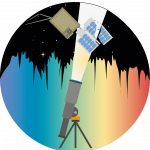
SpecTrackular2024 - 2027
This project aims to develop an optical telescope system capable of spectroscopic analysis of space debris. In order to achieve the high-precision telescope pointing and tracking required for this application, a self-learning pointing model and an improvement of orbit prediction based on obtained data will be developed. Ultimately, spectroscopic analysis can give information on the material, pose and rotation of space debris. Read more →
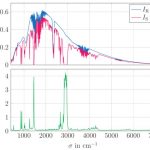
MobileSpectro2022 - 2025
Infrared spectroscopy is a fundamental technique for the characterization and analysis of chemical compounds. MobileSpectro aims to develop a miniaturized high precision FTIR spectrometer that enables handheld operation for field use and provides a performance comparable to lab-based instruments. Read more →
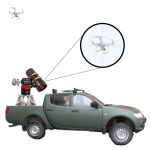
ConvoyFence2021 - 2024
This project aims at the development and integration of a vibration isolation platform with the main target application of optical drone identification systems in mobile scenarios. It will be integrated into existing vehicles to provide early and effective information for the protection of convoys against UAV threats. Read more →
AC-KPFM2020 - 2024
The knowledge of the electrical surface charge distribution at the nanoscale is beneficial for many research areas including biological and material sciences. Kelvin Probe Force Microscopy (KPFM) is considered an eligible tool for the quantitative determination thereof. Current methods utilize a DC-Bias for the measurement of the charge distribution, which is not desirable when operating in liquid environments or on semiconductors. This project aims to bypass the parasitic effects of current methods and to enable quantitative surface potential measurments in DC-Bias critical environments. Read more →
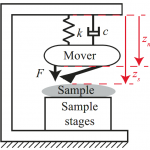
Atomic Force Microscopy using self-sensing cantilevers
In Atomic Force Microscopy (AFM), micro-cantilevers with a sharp tip are scanned over a sample to measure various surface properties with nanometer resolution. The measurement of the cantilever deflection is a crucial part, which defines the imaging performance of AFM. Self-sensing cantilevers with integrated piezoresistive or capacitive elements enable a direct and efficient deflection measurement and are a promising alternative to the conventional optical lever method. This project aims at enabling novel AFM methods and applications by exploiting the advantages of self-sensing cantilevers. Read more →
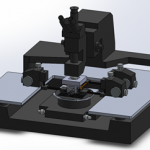
Sub-micrometer scanning probe based characterization of RF products on wafer-level (SuRF)2021 - 2024
RF systems belong to the key components of modern technologies such as radar for environmental detection for safe automated driving through night and fog and Internet of Things devices like 5G telecommunication chips. The goal of the SuRF project is the development of a wafer-level scanning probe system for characterization and testing of radio frequency (RF) and millimeter wave (mmWave) semiconductor products with sub-micrometer precision. Read more →
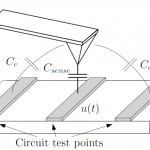
RF-AFM2018 - 2021
The accurate measurement of local RF-voltages within integrated circuits is crucial for the development of miniaturized electronic devices. Contactless probing techniques are considered a promising approach to overcome the space limitations imposed by the size of required contact pads used in conventional probing techniques. This project aims at developing a scanning probe based measurement system capable of mapping voltages within RF-devices with sub-um spatial resolution. Read more →
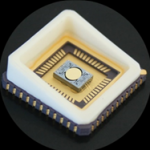
Versatile technology platform for MEMS scan system for automotive safety applications (AUTOScan)2021 - 2024
Advancements of sensors, communication and artificial intelligence are about to bring a revolutionary changes in mobility and transportation by autonomous driving. Scanning mirrors based on Micro-Electro-Mechanical Systems (MEMS) technologies are one of the promising solutions for various automotive applications, e.g. photonic sensing such as lidars and human machine interfaces such as augmented reality head -up display (AR HUD) and smart headlights. The AUTOScan project aims for automotive grade MEMS scanning systems for robust sensing and imaging in harsh automotive environmental conditions, enabling reliable MEMS lidars and AR HUDs. Read more →
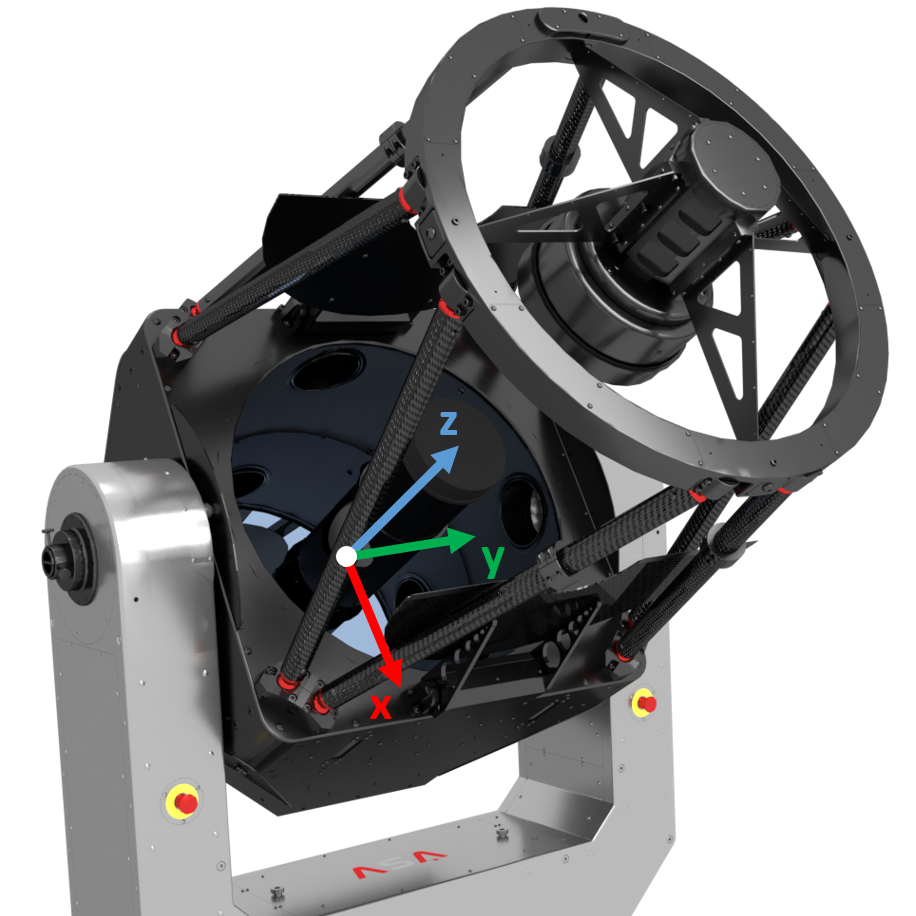
PriMActO2019 - 2022
This project aims for the analysis, development and integration of an active primary mirror cell for mid-sized telescope systems between 60 cm and 2 m. Based on an integrated mechatronic system design and a modular approach, an extremely lightweight construction as well as great imaging performance and cost-efficient solution shall be reached. Read more →
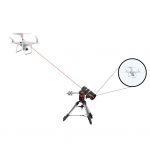
OptoFence II2020 - 2023
Das Projekt zielt auf die Entwicklung eines teleskopbasierten, mobilen, optischen Systems zur Erkennung, Identifikation und präzisen Verfolgung von UAVs in einem signifikant größeren Beobachtungsradius als bisher möglich ab. Das integrierte Kamerasystem erlaubt die Echtzeitaufklärung und –Verfolgung des Zielobjekts, wodurch die Analyse des bestehenden Gefahrenpotentials ermöglicht wird. Durch die deutlich erweiterte Einsatzreichweite des vorgeschlagenen Systems, werden potentielle Bedrohungen rechtzeitig erkannt, sodass eine gezielte Auswahl und Abstimmung notwendiger Abwehrmaßnahmen ermöglicht wird. Read more →